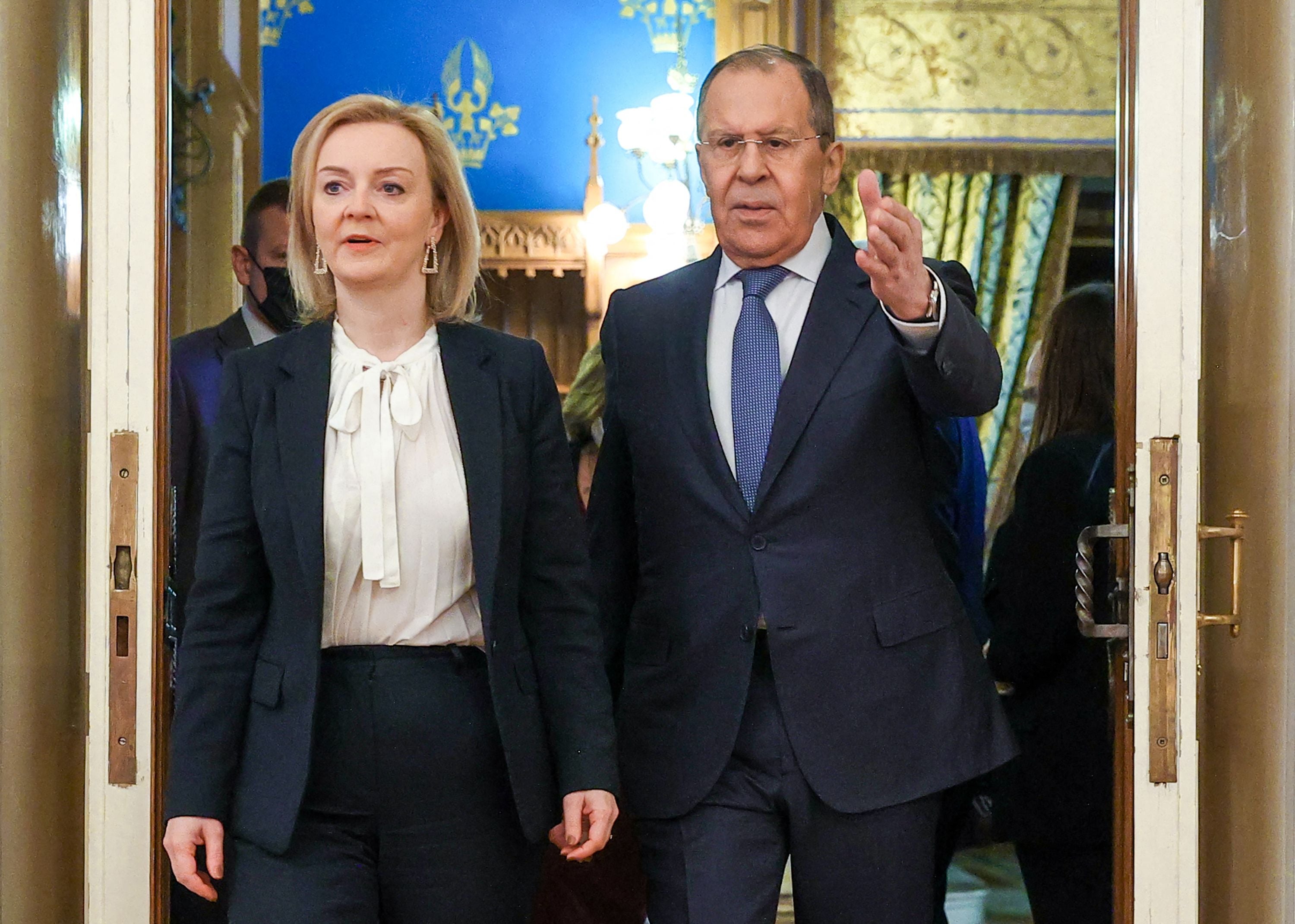Ukraine is paying the price for a decade of western weakness and appeasement
Editorial: President Putin exploits weakness only too well but he also respects strength and solidarity – the west’s non-existent united front has failed Ukraine

The sad truth about Ukraine is that the west will not fight for it. Boris Johnson, as if to underline the point, travelled all the way to a Nato meeting in Brussels, and then on to Poland, to show that he will talk tough and deploy troops there – and in any other Nato country or friend in the region – but not in Ukraine. There will be RAF patrols in Romania and out of Cyprus, there will be troops in Estonia and Poland, there will be royal navy ships in the eastern Mediterranean and the Black Sea; anywhere but Ukraine.
Morally, the Ukrainians certainly have Britain behind them, as Liz Truss told Sergei Lavrov, the Russian foreign minister. Then there is the potent threat to send British armaments to Ukraine, and that of fearsome economic sanctions – and, bizarrely, a pledge from the prime minister to overwhelm Russia’s diplomatic “bandwidth” with ever more talks. But not a single British squaddie will fire a single bullet at a Russian if that Russian puts a toecap over the frontier, as Mr Johnson puts it. Of that, all – including President Putin – may be sure.
Although the British are on the more honourable and determined end of the divided western response to Russian expansionism, the deterrence of a full military presence or defence-treaty guarantee for Ukraine is of course painfully absent. That is the problem. If the Russians believed that a war with Nato would follow any further aggression, they would not be menacing the country now.
President Putin exploits weakness only too well, but he also respects strength and solidarity. America, for all its recent failures, isolationism and internal discord, remains a superpower. Russia could surely be faced down and restrained by a US allied with Canada, much of the European Union, Britain, and its friends across the globe. Instead, Mr Putin sees western leaders, such as President Macron and Mr Johnson, jostling for “leadership” roles in a non-existent united front.
It is also far too late. If Nato had admitted Ukraine as a member a decade ago, the Russians would never have annexed Crimea and occupied the east of the country. But Ukraine never became part of Nato, or the EU, and is still on its own.
That (regrettably) being so, there is no alternative but to come to some sort of arrangement with Russia. It is possible to see some outlines of an agreement, even as Russian and Belarusian troops undertake menacing manoeuvres around Ukraine’s borders, and even as the prime minister rightly warns of the dangers of this moment. If Ukraine is not to join Nato, and is not to be swallowed up by Russia, it must become neutral.
Russia demands that Ukraine cannot be a member of Nato, which outrages Ukraine and the west. Yet there seems no realistic prospect of Ukraine joining Nato, even if the country enjoys a perfect sovereign right to apply, and Nato is open in principle to new members. In practice, if not in rhetoric or theory, the west and Russia are actually in agreement that Ukraine cannot be in Nato for the foreseeable future.
Ukraine, through no wish of its own, is not a member of the western alliance, nor of Russia’s club of client states that were once part of the Soviet Union – the Collective Security Treaty Organisation (CSTO).
Outside Nato, and outside the CSTO, Ukraine is already effectively a non-aligned, neutral state. So the recent suggestion from the Russian ambassador to the EU, that Ukraine should follow the Austrian and Finnish examples and embrace formal neutrality, isn’t very different from the status quo. In return, the suggestion seems to be that the Russians might even relax their hold on the eastern provinces of Ukraine, with some continuing Russian influence – which should probably be the case anyway, given the demographics of the region.
It shouldn’t be a deal that goes against the wishes of Ukraine, or is agreed above its head, but it is one that would preserve the present state of peace. It would be the price paid by Ukraine and the west for their past decade of weakness and appeasement.
To keep up to speed with all the latest opinions and comment sign up to our free weekly Voices newsletter by clicking here
President Putin leads a nation with few assets other than its natural resources and its vast military, and has used both to maximum effect. He has used the supply of natural gas to Europe to emasculate German resistance, which was never going to be especially robust, and he has played western leaders off against each other.
It is perhaps fanciful to imagine that if Britain were still in the EU, things would be radically different; but Ms Truss’s voice would probably carry more weight in Moscow. Short of a Nato guarantee of its security, Ukraine can only hope that Mr Putin will sense the unhappiness of his own people at the thought of sanctions, and of the loss of life in another war of aggression – which would be bloody – and at the prospect of continuing Ukrainian resistance even under Russian occupation.
With some modest western concessions on the de facto “neutrality” of Ukraine, war may yet be avoided; but the danger has not yet passed.






Join our commenting forum
Join thought-provoking conversations, follow other Independent readers and see their replies
Comments